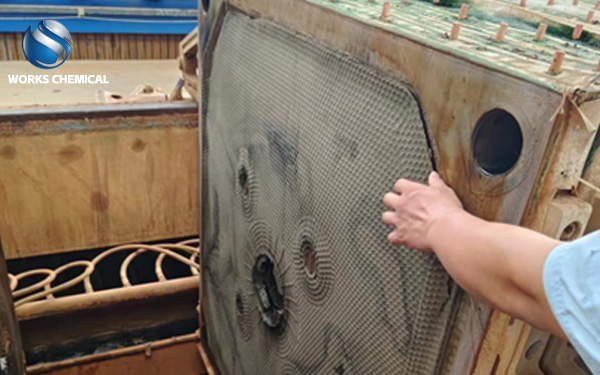
Municipal sludge treatment method is the use of belt filter press, plate and frame filter press, centrifugal dewatering machine and other mechanical dewatering equipment for sludge reduction. With the improvement of sludge final disposal requirements, the efficiency requirements of sludge dewatering also increase.

At present, the moisture content requirement of sludge incineration treatment has been increased to less than 60%. However, the moisture content of the sludge treated by the commonly used belt dehydration and centrifugal dehydration methods is only about 80%, which can not meet the moisture content requirements of the dehydration treatment standard below 60%. Therefore, many manufacturers now use the plate and frame sludge machine for sludge dehydration. In order to improve the dehydration efficiency of the plate and frame machine, it is often necessary to use chemical agents to quench the sludge. The polymer flocculant can cause clogging of the filter cloth and affect the operation of the equipment, so it cannot be used. Adding inorganic salts (such as iron salt, calcium salt, etc.) regulators can separate the cement, but due to the large amount, the amount of dry mud will also be greatly increased, resulting in a decrease in the dry mud combustion value of the mud, and subsequent sludge disposal. The cost will also increase.
Works Chemical has developed innovative high-performance sludge enhancers for plate-and-frame presses. Sludge enhancer can be applied to sludge dewatering treatment of plate and frame type mud press. The dehydration effect is good. The moisture content of dry mud can reach less than 60%, and the filter cloth will not be blocked, and will not affect the normal operation of the mud press.
Sludge enhancer is an innovative organic sludge dewatering agent with high efficiency. It has a very low molecular weight, but it is very electrically neutralizing. It can provide better sludge coagulation effect than inorganic salt such as calcium salt. Fast, specially used for sludge dewatering. Such products can make the negatively charged colloidal particles unstable, forming microfloc, small sludge particles, easy to dehydrate.